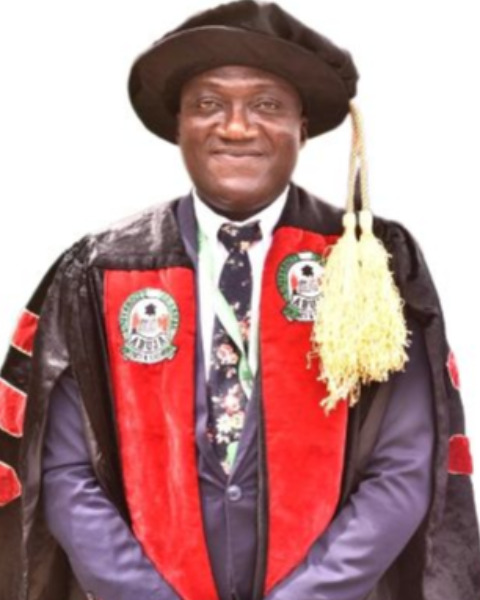Education
Advancing Neurosurgical Education in Nigeria: Power of one
Advancing Neurosurgical Education in Nigeria: Power of One

Joseph O. Obande, MD
Associate Professor
University of Abuja Teaching Hospital
Gwagwalada, Nigeria
Presenting Author(s)
Introduction: The growth of neurosurgical education in Nigeria has been a significant development, with the arrival of a passionate neurosurgical visionary birthing a paradigm shift. However, this era was predated by myriad challenges, including a critical shortage of trained specialists that impacted the accessibility of neurosurgical education in the country. This study aimed to assess the educational impact of neurosurgical training at the Regional Center for Neurosurgery in Northern Nigeria.
Methods: A mixed design model was utilizing, tracking the genealogy of all trained neurological surgeons from the Regional Center for Neurosurgery, Sokoto, Nigeria, their spread across the country as well as involvement with academic neurosurgery and sending a digital single-blinded multi-center cross-sectional self-report validated interview-based questionnaire to medical students of 28 medical colleges across Nigeria, detailing questions including availability of neurosurgery educators and neurosurgery residency training programs, and their impact on academic and clinical practice, and choice of career paths.
Results: The results showed that the current advancement of neurosurgery in Nigeria began with Prof. BB Shehu, who founded the Regional Center for Neurosurgery in 2000. Northern Nigeria now has 10 academic departments, with 26 specialist neurosurgeons and robust neurosurgery residency programs. Medical students begin to imbibe neurosurgical education. Medical students responded to 64.8% satisfactory neuroanatomical lectures, 79% agreed to have a neurosurgery department, and 80% reported the performance of neurosurgical procedures in their hospitals. Only 49.5% of respondents have neurosurgery residency in their hospitals, and 19% rotate for up to 4 weeks in neurosurgery. That neurosurgery teachers exhibited knowledge, dedication, passionate and save lives shared 84.4%, 69.5%, 61.9%, and 46.7% respectively.
Conclusion : The power of one person's individual contributions can offer unprecedented hope in neurosurgical education- metamorphosing into individuals’ contributions that can collectively drive impactful growth. Enduring enhanced mentorship opportunities will not only elevate the quality of training but also have a profound effect on the overall neurosurgical landscape in Nigeria.
Methods: A mixed design model was utilizing, tracking the genealogy of all trained neurological surgeons from the Regional Center for Neurosurgery, Sokoto, Nigeria, their spread across the country as well as involvement with academic neurosurgery and sending a digital single-blinded multi-center cross-sectional self-report validated interview-based questionnaire to medical students of 28 medical colleges across Nigeria, detailing questions including availability of neurosurgery educators and neurosurgery residency training programs, and their impact on academic and clinical practice, and choice of career paths.
Results: The results showed that the current advancement of neurosurgery in Nigeria began with Prof. BB Shehu, who founded the Regional Center for Neurosurgery in 2000. Northern Nigeria now has 10 academic departments, with 26 specialist neurosurgeons and robust neurosurgery residency programs. Medical students begin to imbibe neurosurgical education. Medical students responded to 64.8% satisfactory neuroanatomical lectures, 79% agreed to have a neurosurgery department, and 80% reported the performance of neurosurgical procedures in their hospitals. Only 49.5% of respondents have neurosurgery residency in their hospitals, and 19% rotate for up to 4 weeks in neurosurgery. That neurosurgery teachers exhibited knowledge, dedication, passionate and save lives shared 84.4%, 69.5%, 61.9%, and 46.7% respectively.
Conclusion : The power of one person's individual contributions can offer unprecedented hope in neurosurgical education- metamorphosing into individuals’ contributions that can collectively drive impactful growth. Enduring enhanced mentorship opportunities will not only elevate the quality of training but also have a profound effect on the overall neurosurgical landscape in Nigeria.

.jpg)